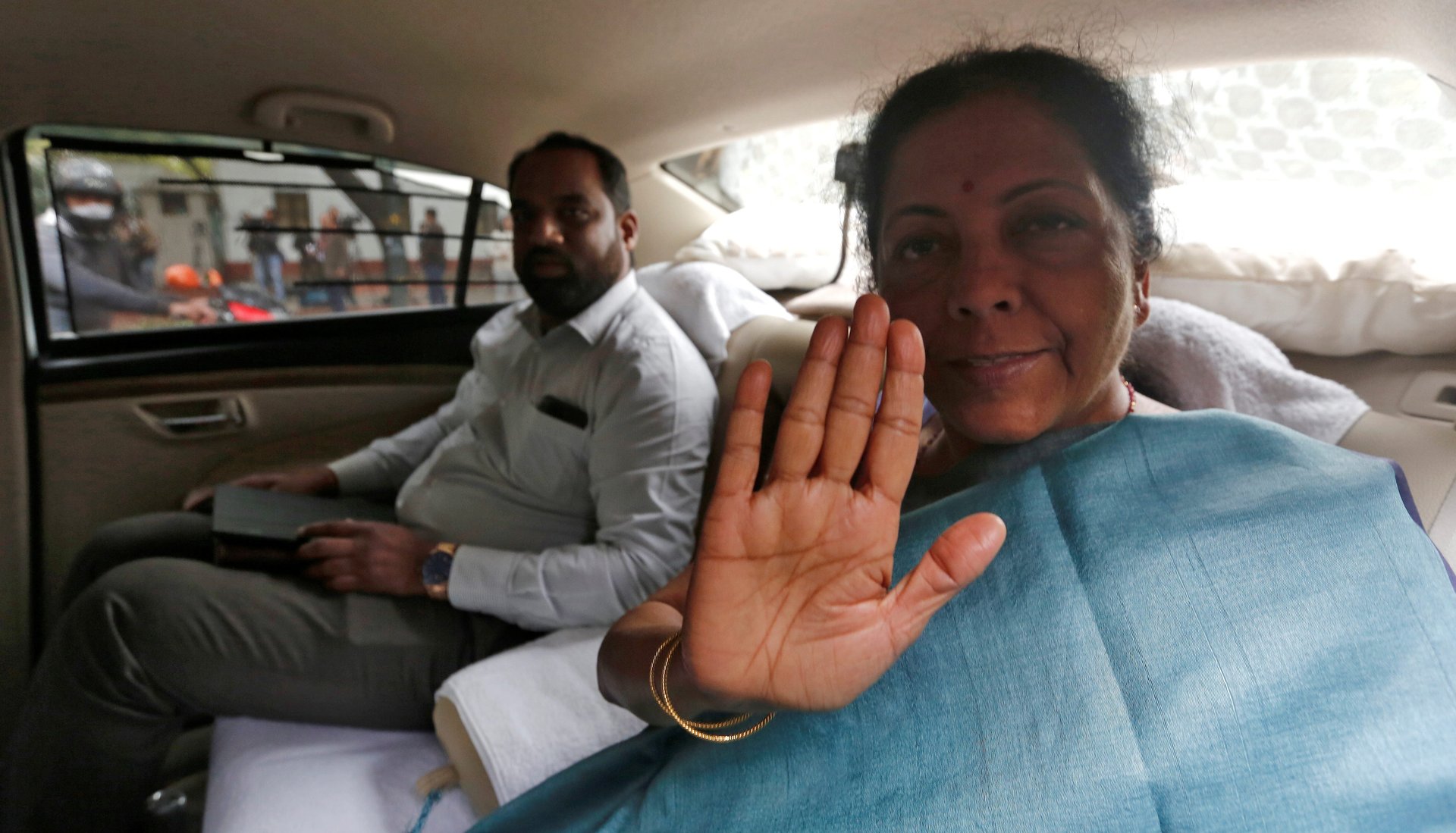Incentives announced in India’s union budget may not do much for electric vehicles
India thinks its cities can become the “Detroit of EVs.”


India thinks its cities can become the “Detroit of EVs.”
With that vision, finance minister Nirmala Sitharaman today (July 5) announced a bunch of policy actions to make owning and manufacturing electric vehicles (EVs) cheaper in the country.
Among other things, the government has moved to reduce the goods and services tax (GST) on EV purchases to 5%, compared with the existing rate of 12%, Sitharaman said while announcing the union budget for 2019-20.
Customers will also get an additional income tax relaxation of up to Rs1.5 lakh ($2,188) against interest payments on any loan that they take to buy an EV. This raises the total rebate that can be availed on the interest on EV loans to Rs2.5 lakh, including an earlier Rs1 lakh allowance.
But these moves can’t significantly improve EVs’ competitiveness against conventional vehicles in the highly price-sensitive Indian market, said Deepesh Rathore, director at consulting firm Emerging Markets Automotive Advisors.
While a GST reduction of 7% still keeps EVs firmly out of the price range of all auto segments, “no existing EV model (in the country) needs a loan big enough that the interest would come anywhere close to Rs2.5 lakh,” he said.
Earlier this year, the government had brought out the long-delayed second phase of its Faster Adoption and Manufacturing of (Hybrid &) Electric Vehicles in India (FAME) policy. But almost no existing electric car models are eligible for subsidies under the scheme.
About 759,000 EVs were sold in the country in the financial year ended March 2019, according to the Society of Manufacturers of Electric Vehicles industry group. An overwhelming majority of these were three-wheelers that are used in public transport. By 2020, India hopes to raise EV sales to around 6-7 million.
Though the industry was expecting another subsidy after a disappointing FAME 2, the government could not have doled out cash considering its slipping fiscal deficit, said Puneet Gupta, associate director with global information provider IHS Markit.
In her budget speech, Sitharaman also announced the elimination of the import duty on lithium-ion cells used in manufacturing EV batteries. India does not have the natural resources to produce these cells, whose biggest exporter is its neighbour China. Incidentally, earlier this year, the Indian government had decided to double the rate of the duty from April 2021.
Now, the bid with these new moves is to raise both the local demand and supply of EVs, Gupta said: “With a reduction in GST, the government is trying to increase demand, and by pulling down the import duty it is trying to cut down the cost to build EV parts in India.”